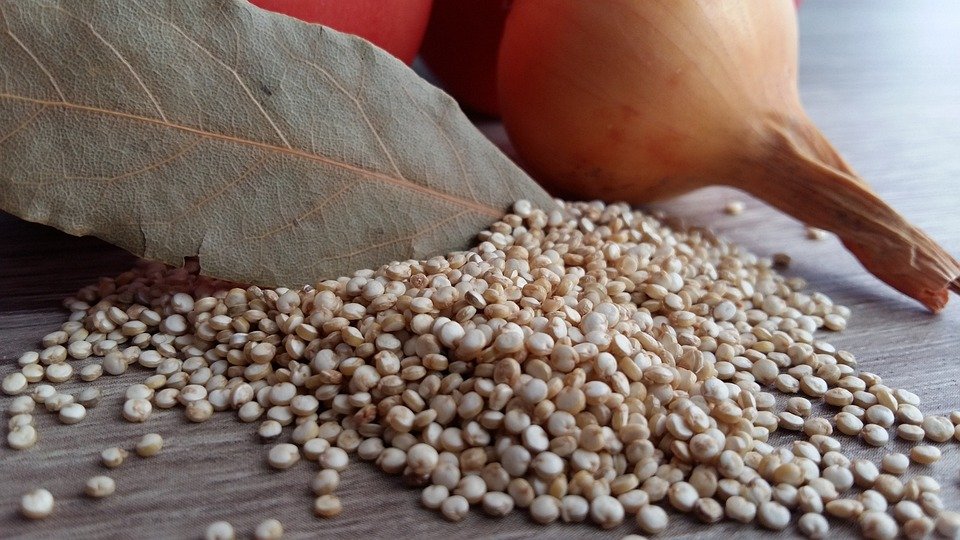The Role of Fiber in a Healthy Diet: Why It’s Important and How to Get More
In today’s fast-paced world, the importance of maintaining a healthy diet cannot be overstated. A well-balanced diet provides our bodies with the necessary nutrients to function optimally. One crucial component of a healthy diet that often gets overlooked is fiber. Fiber plays a pivotal role in our digestive system and overall well-being. In this article, we will dive deeper into why fiber is important, how it benefits our bodies, and how to incorporate more of it into our daily meals. So, let’s get started!
1. Why is fiber important?
Fiber is a type of carbohydrate that our bodies cannot fully digest. Unlike other carbohydrates, fiber passes through our digestive system relatively intact. This unique quality brings numerous benefits to our health. Firstly, fiber aids in maintaining bowel regularity by adding bulk to our stool and preventing constipation. It also helps to prevent hemorrhoids and other digestive disorders. Secondly, fiber plays a crucial role in managing weight. High-fiber foods tend to be more filling and can help curb overeating. Additionally, fiber-rich foods require more chewing, which slows down the eating process and allows our bodies to feel satisfied sooner. Finally, fiber helps regulate blood sugar levels and reduce the risk of developing type 2 diabetes. It slows down the absorption of sugar into the bloodstream, preventing sudden spikes and crashes.
2. How does fiber benefit our bodies?
Fiber offers a wide range of benefits that positively impact our overall health. Firstly, it promotes heart health by reducing cholesterol levels. Soluble fiber, found in foods such as oats, beans, and lentils, binds to cholesterol in the digestive system and removes it from the body, thus preventing it from clogging arteries. Secondly, fiber aids in maintaining a healthy weight. As mentioned earlier, fiber-rich foods are more filling, which can prevent overeating and promote weight loss. Thirdly, fiber helps to regulate blood sugar levels. By slowing down the absorption of sugar, it prevents sudden spikes and crashes, which can be particularly beneficial for individuals with diabetes. Lastly, fiber supports a healthy gut. It acts as a prebiotic, providing nourishment for beneficial gut bacteria, which are essential for proper digestion and immune function.
3. How can we incorporate more fiber into our diet?
Increasing fiber intake doesn’t have to be a daunting task. By making a few simple changes to our daily meals, we can easily boost our fiber intake. Here are some practical tips:
a. Choose whole grains: Opt for whole grain bread, pasta, and rice instead of their refined counterparts. Whole grains are higher in fiber and offer more nutritional value.
b. Eat more fruits and vegetables: These natural sources of fiber should be a staple in any healthy diet. Aim for at least five servings of fruits and vegetables per day. Leave the skins on whenever possible, as they contain the most fiber.
c. Include legumes and beans: Incorporate more lentils, chickpeas, black beans, and other legumes into your meals. They are not only excellent sources of fiber but also provide plant-based protein.
d. Snack on nuts and seeds: Almonds, chia seeds, and flaxseeds are great options for adding fiber to your diet. Sprinkle them on salads, yogurt, or enjoy them as a snack.
e. Increase your intake of high-fiber snacks: Replace processed snacks with healthier alternatives such as air-popped popcorn, veggie sticks with hummus, or whole fruit.
f. Gradually increase fiber intake: It’s important to gradually increase your fiber intake to prevent digestive discomfort. Start by adding small amounts of fiber-rich foods to your diet and gradually increase the portions over time.
FAQs:
Q: How much fiber should I consume daily?
A: The recommended daily intake of fiber is 25 grams for women and 38 grams for men. However, individual needs may vary based on factors such as age, sex, and activity level.
Q: Can I take fiber supplements instead of consuming high-fiber foods?
A: While fiber supplements can be beneficial for some individuals, it’s always best to obtain nutrients from whole foods whenever possible. Whole foods provide a wide range of vitamins, minerals, and other beneficial compounds that supplements may not offer.
Q: Can too much fiber be harmful?
A: Consuming excessive amounts of fiber can lead to digestive discomfort such as bloating, gas, and diarrhea. It’s important to gradually increase fiber intake and drink plenty of water to help your body adjust.
Q: Is all fiber created equal?
A: No, there are two types of fiber: soluble and insoluble. Both types are important for our health. Soluble fiber dissolves in water and can help lower cholesterol and regulate blood sugar levels. Insoluble fiber adds bulk to stool and aids in maintaining regular bowel movements.
In conclusion, fiber is an essential component of a healthy diet. It offers numerous benefits, including improved digestive health, weight management, and heart health. By incorporating more high-fiber foods into our daily meals and making simple dietary changes, we can easily increase our fiber intake and enjoy the many health benefits it provides. Remember to stay hydrated and gradually increase fiber intake to avoid any discomfort.


